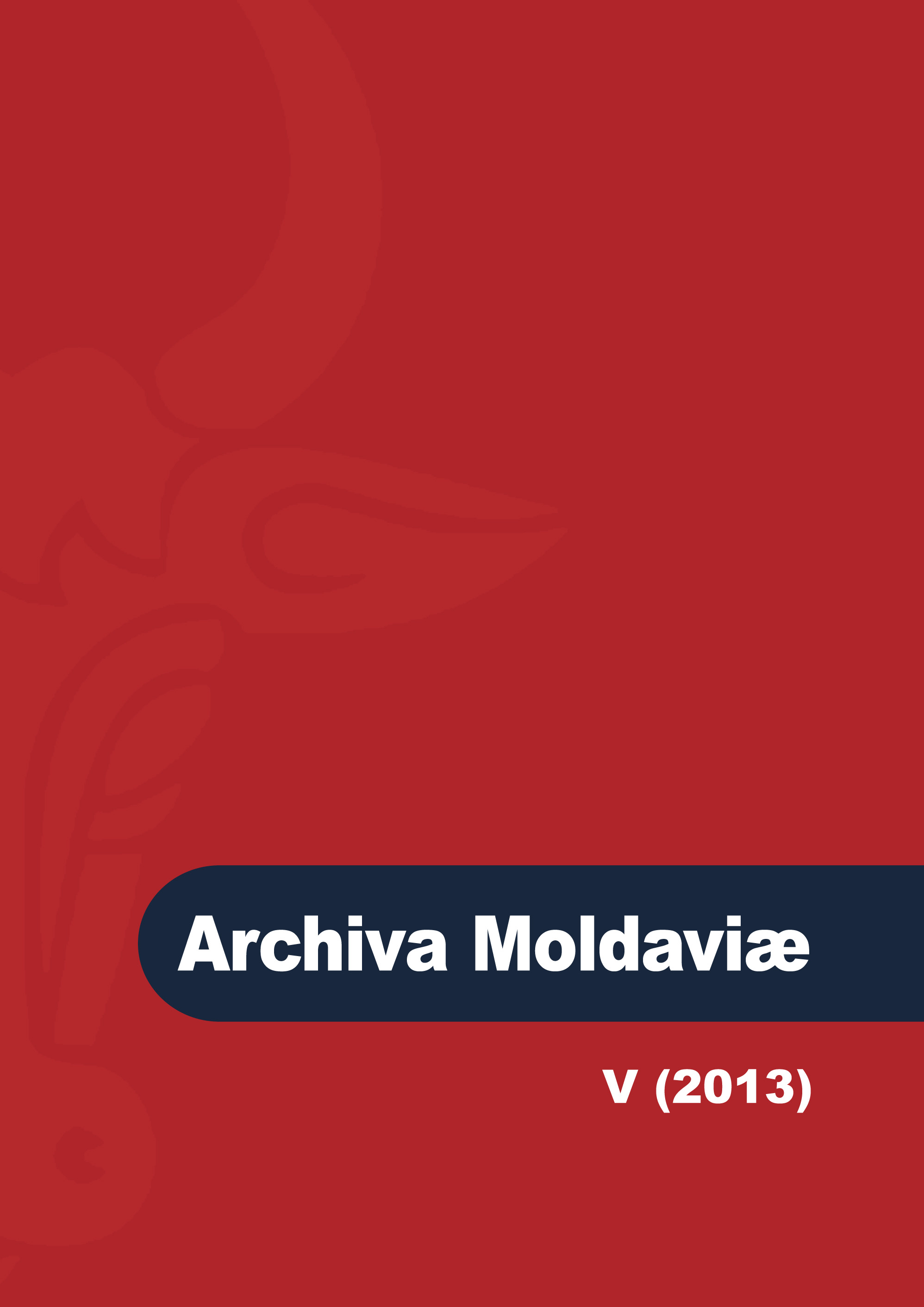La révolte de Ioan Vodă et les relations moldavo-ottomanes 1538-1574 (III)*
Ioan Vodă’s Revolt and Moldo-Ottoman Relations, 1538-1574 (III)
Author(s): Mihnea BerindeiSubject(s): History, 16th Century
Published by: Societatea de Studii Istorice din România
Keywords: Moldavia; Ioan Vodă; Petru Șchiopul; Alexandre II Mircea; ottoman Empire; Selīm II; Murād III; Meḥmed Pasha Aḥmed čavuš; sipāhī; Poland; Henry of Valois; Ştefan Báthori; George Jazłowiecki; Andreas Ta
Summary/Abstract: In this part of the study several aspects regarding the immediate consequences of the revolt are analysed: the measures of military nature that the Porte decided, the crisis of the Ottoman-Polish relations and the lacks of the Ottoman military system, highlighted by the documents of 1574. The author notices that the Porte received with obvious reserves the news about the defeat, arrestment and killing of Ioan Vodă, being not certain whether the revolt was completely annihilated or which the Poles’ attitude was going to be. The aftermath of the victory obtained at Cahul-Roşcani (20-22 June 1574) all military troops involved in this campaign are ordered to stay alert, the khan of Crimea is ordered to launch a punitive incursion to Poland, as a response to the Poles’ violation of the peace treaty by the support they had given Ioan Vodă. At the same time, some measures are taken in relation to the weakening military capacity of Moldavia: the occupation of the fortress of Hotin by a Ottoman garrison, the extension of the territory of the sanǧaq of Bender in the detriment of the country, the exploitation of the artillery pieces taken from Ion Vodă, the strengthening of the defensive capacity of the Empire by building the fortress of Čapčaqlu and the repairing or reinforcement of the existing ones. The main preoccupation of the Porte after Ioan Vodă’s defeat remained Poland’s attitude towards the new voivode. The Sultan aimed at avoiding a confrontation with the Poles, so, besides some demands and accusations he transmits to the King and the Diet, he proposes a reconfirmation of peace. The Porte’s requests are transmitted to the Poles by five letters, taken to Poland by Aḥmed čavuš. Willing to preserve their good relations with the Empire, the Poles send to the Porte as an ambassador Andreas Taranowski, with the mission to obtain the reconfirmation of the peace treaty. The Moldavia issue becomes secondary as soon as Poland’s throne is free, following Henry III’s abdication in July 1574. Having direct political interests in this part of Europe, the Sultan supports to the throne Stephen Bathory, voivode of Transylvania, whom the Diet would eventually elect as a successor of Henry of Valois on 15 December 1575. In the last part of the paper, the author searches for explanations for the obvious disproportion between the forces mobilised for the campaign in Moldavia and the ones that were necessary to repress the revolt in the end. The answer is mainly to be found in the lacks of the Ottoman military system. These lacks are identified and analysed one by one. We mention the slowness with which military commanders answered the calls for concentration coming from the Porte, the reticence with which the sipāhī, an essential unit of the Ottoman army, answered the mobilisation orders, the succeeding demands meant to change the supreme commanders of the campaign, thus creating confusion and uncertainty. In conclusion, the deficiencies of the Ottoman military systems that occurred in the second half of the 16th century all over the Empire were not yet able to seriously affect its force. The Ottoman Empire was still capable of great military efforts. Ioan Vodă’s revolt had no influence upon the main military operation planned and executed by the Porte in 1574: the reoccupation of Tunis and the reestablishment of the Ottoman supremacy in the Mediterranean Sea.
Journal: Archiva Moldaviae
- Issue Year: V/2013
- Issue No: 5
- Page Range: 27-51
- Page Count: 25
- Language: French

